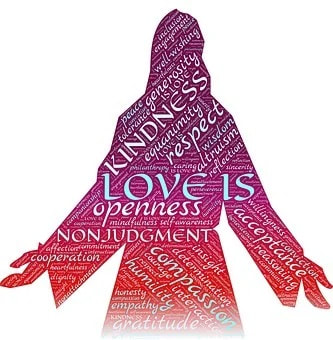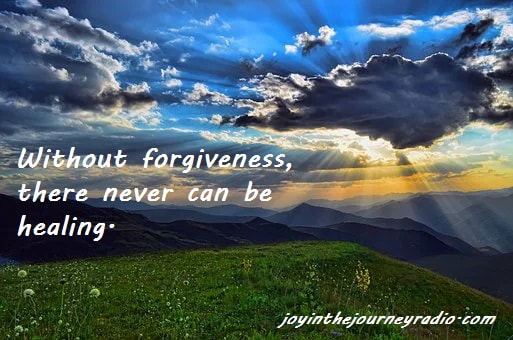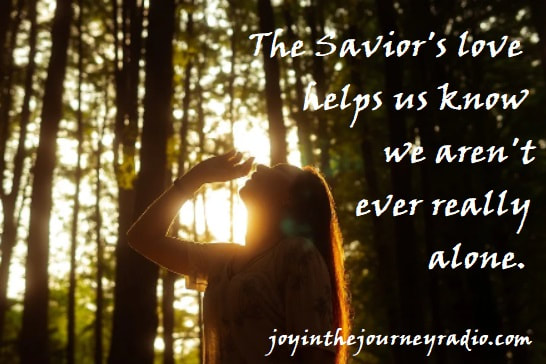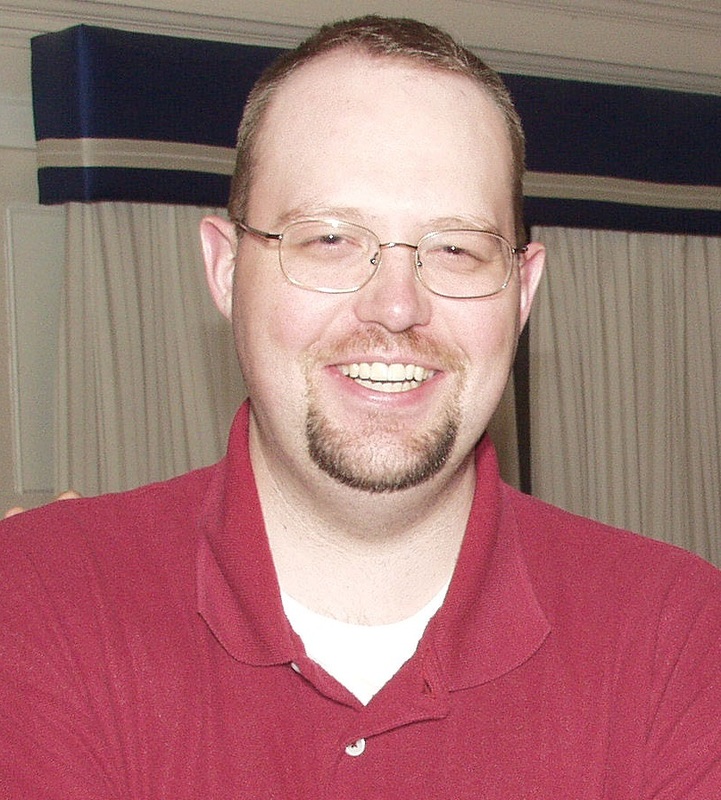Procrastination is one way our biological hardwiring maintains our status quo. “Yeah,” it says, “that dream sounds great, but we’ll get to that someday. Right now we’ve got other things we need to do.” And as long as we keep accepting that excuse for not living our dreams, we’ll never live our dreams because they’ll never come true. There are only seven days in the week, and someday isn’t one of them. When we quit tolerating some day and insist on today, we can move our dreams closer to reality. I have a dream  That has been the kernel of my struggle for so many years. It’s perhaps the most concise explanation for why I don’t yet have all my dreams fulfilled. I too often tolerate lack of progress. But I also struggle as many others do with fitting everything I want to do into my day. Part of that comes from having so many dreams that making substantial progress on any of them is difficult. There’s just too many objectives vying for the limited space in my calendar. And abandoning any them is even more difficult because, as I mentioned earlier, I can’t help but dream big — big not just in the extent of any single dream but also in my quantity of dreams. I dream of an eternal marriage to a wonderful, faithful LDS woman who sees in me my virtues more than my vices. I dream of an LDS culture that fully accepts singles as well as marrieds. I dream of a vibrant LDS singles support network. I dream of a career in higher education through which I inspire the next generation to make the world a better place. I dream of building businesses generating overflowing wealth to support whatever my community needs. I dream of writing books and producing other products that help people live lives filled with more joy and satisfaction. And my list goes on. Like I said, I can’t help but dream big. All the actions required to bring all my dreams into reality can’t possibly fit inside the fixed space of a 24-hour day or even a single week, month, or year. And so it’s easy to accept that “voice” from my biological hardwiring that says, “You can do that someday.” Someday never comes  Ultimately, this fight — the fight within each of us — revolves around standards. What standards will we tolerate for the life we’ll live? The dreams we all have of a wonderful future necessitate change; otherwise we wouldn’t have those dreams. But all results come only from action. Tolerating excuses that our dreams will happen someday keeps pushing the realization of our dreams further and further into the future. That’s because someday never comes. Choosing to accept the excuse of someday is choosing to accept a standard of living life outside our dreams, and a standard of joy and satisfaction in life far below what they could be. The joy and satisfaction of living our dreams will come only after we choose not to tolerate anything below the standards of our dreams. Raise your standards  We Latter-day Saints are familiar with standards. We often link them with blessings. Those who live the standards get the blessings that come from obedience. Those who don’t live the standards don’t. Ultimately, standards serve another purpose. Standards provide boundaries that distinguish who belongs in the community and who doesn’t. In like manner, the standards required for our dreams determine whether we’ll live them or not. When we live by those standards, we move closer to our dreams. When we don’t, we don’t. If you want to live your dreams, you need to raise your standards. Never tolerate someday. Always tolerate nothing less than progress — even if it’s only a little each day — towards making your dreams reality. When you stop focusing on what others did or didn’t do and start focusing on what you can do, you’ll start to feel the power that comes from moving towards your dreams. And that will bring you more joy in your journey.
0 Comments
That’s true for anyone, LDS singles included. How much injustice have we endured? How often have we been considered an “other” or somehow “less than”? The bitterness we singles can feel — and indeed many have felt — isn’t fundamentally different from the bitterness behind all the chaos currently tearing the country apart. Bitterness is bitterness. Hate is hate. And so as we approach Father’s Day this year, I reflect upon the never-married single men who want to be fathers but feel embittered against the single women who have constantly rejected them. I reflect upon the divorced single fathers who feel embittered from a broken marriage. I reflect upon the widowed men who feel embittered after tragedy forces singleness upon them. For these and so many others, what we need is forgiveness. Without forgiveness, there can never be healing. Start with self  I was once quite embittered. In fact, I often joked, “I’m so jaded, I’m diamond!” — a tongue-in-cheek jab at the single sisters who somehow couldn’t see what a real find I was. But that attitude never made me less single. If anything, it kept me more single. After all, who wants to live with bitterness? And the ironic part is that the hatred bitterness always breeds is most fully directed against self. One may think all of the hatred is directed outward, but how can people truly love others without also loving themselves? We’re all children of the same Heavenly Father. Only after I embraced forgiveness — of both myself and the imperfect ladies making imperfect choices regarding me — did healing begin to take hold in my heart. And only after my heart had healed could I broadcast a more positive energy that then led to more positive dating experiences Take strength to let go  Simply put, the failure to forgive will hold everyone back from living their best life. Many singles harbor ill-will for both perceived and real injustices related to their singleness. However justified singles may believe their feelings to be, bitterness will always consume more the longer it’s held. Healing can’t happen until we let the bitterness go. Chris Williams was a married man until a drunk teenage driver robbed him of his wife, then pregnant with their fifth child, and two of his other children. He watched his wife’s last breath. I can only imagine the sorrow this man endured.
If you’re unfamiliar with the story of Chris Williams, I highly recommend you watch the video in which Chris tells his story. And if you’re anything like me, grab a box of tissues first because you will break a water main. Let the healing begin  Of course, it’s not just single men who need to embrace forgiveness. Everyone’s been wronged somehow. Bitterness works the same way in anyone. It knows no preference on whom it feeds. And it doesn’t matter who is involved. Bitterness will corrode and canker whatever soul contains it. It works the same way on anyone. Its antidote is also the same for anyone. What we need is forgiveness. Without forgiveness, there can never be healing. So this Father’s Day, show your love for fathers by embracing forgiveness. Forgive the man who was never the father you needed. Or forgive the one who took your father from you. Or forgive the man who has yet to be a father, especially if that man is you. Whatever your situation, embrace forgiveness. Let the healing begin. Only then will come the peace and comfort you yearn to feel. And that will bring you more joy in your journey.
I’m not sure what it was exactly. It’s not like the situation this sister describes is abnormal, extraordinary, or unusual. Confronting loneliness is part of the reality of singleness. I just felt I should address the question posed in this post. Don’t ask me to compare the loneliness of the never-married versus the divorced versus the widowed. I don’t even know where to begin there, nor am I entirely certain that comparison would provide any real value. What I do know is that I’ve had my own confrontation with loneliness and overcome it. I know the depths of despair that can enter the heart from prolonged singleness. I’ve been single for over two decades. I also know the pure joy and hope that fill the heart and soul when you change the way you think and adopt a personal ministry. And I know this is true because I’ve lived that joy and am living it now. Change your thinking Most of the comments offered in response to this single mother’s question revolved around two approaches: hobbies and renewal activities. They represent two ways of what I see as fundamentally the same approach. And that approach doesn’t address the real issue at hand. Don’t get me wrong. I’m not against hobbies. And I’m certainly not against participating in regular activities that renew the spirit, heart, mind, and body. In fact, having regular renewal rituals is a great way to live life. We all need to recharge from time to time. Yet neither of these methods proposed to combat the loneliness we LDS singles encounter solve the problem. They’re simply bandages covering the problem with a seemingly healthy and often pleasurable distraction. Avoiding problems will never solve them. Real solutions always require us to act. That action starts when we change the way we think. We need to discard the notion that we have to be married or have some significant other in our lives in order to be happy. We need to stop conditioning our happiness on the choices of others. And we need to throw off any vestige of any victim mentality we have and replace it with a victor mentality. We need to own our lives, taking full responsibility for whatever results we do have and recognizing the power of our own choices in delivering to us the life we want. Adopt your ministry  Attitude without action will never bring you achievement. Some people get fired up with positive thinking, but then their lives don’t change because they didn’t really change, especially in the way they think. Changed thinking always leads to changed action, which in turn always leads to a changed reality. One of the best actions more effective ways of thinking always lead one to take is to adopt a personal ministry. Your personal ministry is that unique contribution of goodness you make to the world, the cause through which you uplift and bless the lives of others. We’ve discussed before on the program how adopting a personal ministry can help LDS singles overcome their challenges. Here are just three of those reasons:
Turn yourself outward  When you think about it, it’s not hard to understand why a personal ministry offers so much benefit for LDS singles seeking to overcome loneliness and other challenges we LDS singles face. It aligns us with the path the Savior trod by turning ourselves outward towards others. That’s in stark contrast to the bandage solutions mentioned earlier. Again, I’m not against hobbies and renewal rituals. But focusing exclusively here will turn ourselves inward towards ourselves. That’s why they will never really solve the problem of loneliness. Only by turning ourselves outward can we connect with others in ways that remind us we aren’t ever really alone. Only by turning ourselves outward can we connect with the Savior Who fills us with His love that helps us to know we aren’t ever really alone. If you feel consumed by loneliness, consider your focus. Your focus will always determines your reality. Change your thinking, adopt a personal ministry, and turn yourself outward. You’ll shift your focus towards others and shift your reality away from your problems and into your possibilities. And that will bring you more joy in your journey.
In addition to the scriptures-Spirit-assimilation model we discussed last week, the Prince of Peace provides additional aids and comforts. Elder Neil L. Andersen spoke of such aids in his address from the last General Conference entitled “Spiritually Defining Memories.” These memories recall moments in our lives when the Spirit provides strong confirmation that God knows and loves us individually. They provide courage in times of concern and faith in times of fear. They help us to know that God knows that we know He will not forsake us. Follow the prophets  Elder Andersen began his remarks by recounting the experience of Joseph Smith with his spiritually defining memories of the First Vision. The Prophet Joseph faced persecution and hardship because of both his experience and his witness of that experience. But God never forsook him. Even when he rode towards his assassination, he remarked, “I am going like a lamb to the slaughter, but I am calm as a summer’s morning; I have a conscience void of offense towards God, and towards all men” (D&C 135:4). He knew that God knew that he knew God would not forsake him. Elder Andersen then jumps to an experience from our current Prophet, President Russell M. Nelson. Some years ago while President Nelson was a practicing heart surgeon, an elderly stake patriarch pleaded with him to perform a surgery he desperately needed. The then-Dr. Nelson describes vivid pictures of how to perform the needed operation which came clearly into his mind during the surgery. As Elder Andersen relates, “he knew that God knew that he knew he had been directed.” Remember Him  Elder Andersen provided more examples from both his own life and others he knew. What strikes me about each of these experiences, including the ones from modern-day prophets, is that God always individually tailors whatever offering He provides. As I accept Elder Andersen’s invitation to reflect on my own spiritually defining memories, I can see the same holds true for me. Throughout my life, and especially as a single Latter-day Saint, God has always individually tailored His offerings to me. I know that God knows that I know He loves me and is aware of me and my circumstances. I remember one moment in which I felt particularly discouraged. As is sometimes my habit, I was listening to Internet radio as I worked. But in this moment, discouragement clouded my concentration, preventing me from focusing as well as I could on my task. Then the Internet radio station began playing a song I had never before heard. It spoke powerfully to the deepest parts of my soul, reaffirming my eternal worth and potential. In that moment, I knew that God knew that I knew He treasured me and has always wanted so very much to bless me. Elder Andersen provides this description:
God supports us in our eternal journey with spiritually defining memories. Hear Him  Ultimately, our ability to have those experiences that provide spiritually defining memories in our lives depends first on the will of God — because if He wants something to happen, it will, and if He doesn’t, it won’t — and secondly on our willingness to hear Him. President Nelson has recently invited us “to think deeply and often about this key question: How do you hear Him?” as well as “to take steps to hear Him better and more often.” The row we LDS singles have can be hard to hoe, but with the Lord at our side there is nothing we cannot accomplish. The better we hear Him, the more we’ll feel His love and support. He’ll bring spiritually defining memories to our remembrance, and He’ll graciously grant us more experiences that make more spiritually defining memories. As Elder Andersen counseled,
What spiritually defining memories are yours? As you reflect on those sacred transmissions of love from your Heavenly Father, you will feel more of His love for you. You’ll position yourself to hear Him better. You’ll know that He knows that you know He loves you. And that will bring you more joy in your journey.
|
Author
Howdy! I'm Lance, host of Joy in the Journey Radio. I've been blogging about LDS singles life since 2012, and since 2018 I've been producing a weekly Internet radio show and podcast to help LDS singles have more joy in their journey and bring all Latter-day Saints together. Let's engage a conversation that will increase the faith of LDS singles and bring singles and marrieds together in a true unity of the faith.
Comment
Joy in the Journey Radio encourages the free discussion of ideas but reserves the right to remove and/or block comments which do not conform to LDS standards.
Donate
Joy in the Journey Radio offers many free resources to help LDS singles everywhere, but it certainly isn't free! Help Joy in the Journey Radio in its mission to improve the lives of LDS singles by donating today.
Posts by Month
December 2022
Categories
All
|








 RSS Feed
RSS Feed